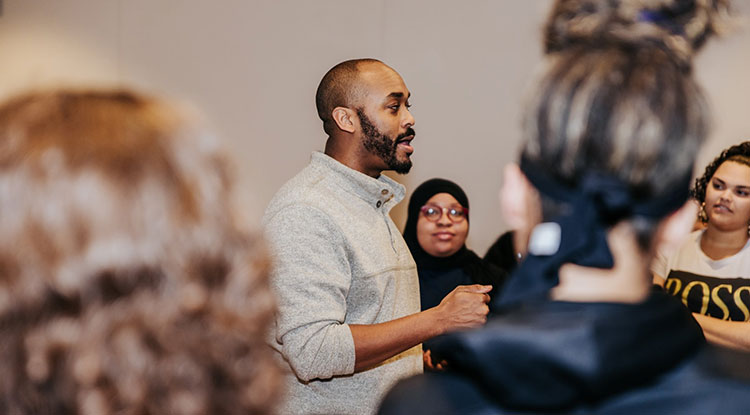
Referring to the life's work of a 31-year-old may seem presumptuous. However, Justin Brown has been devoted to diversity, equity, and inclusion education for nearly half his life.
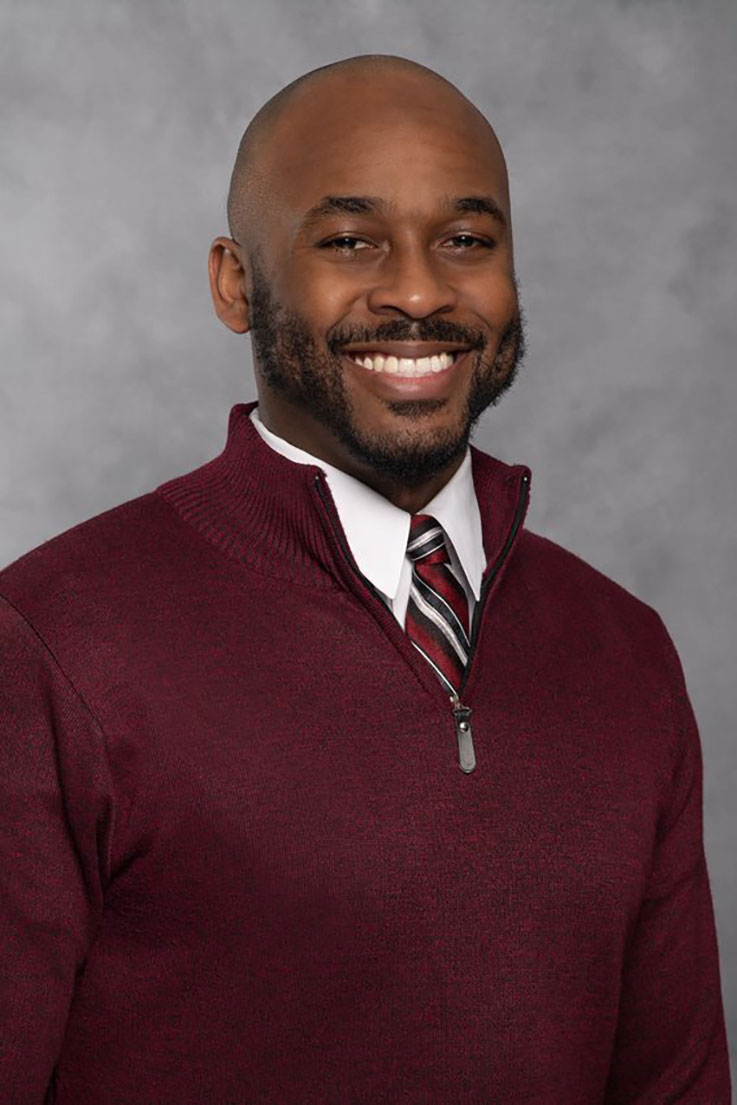
More about Justin Brown
- Director of Diversity, Equity, and Inclusion, Downingtown Area School District
- Creator/President, Diversity Awareness Program
- President and CEO, Onward and Upward (college preparatory program)
Past Positions
- Resident Director, West Chester University
- Graduate Residence Director, IUP
Education
- MA, Student Affairs in Higher Education, 2013, IUP
- BS, Public Relations, 2011, Slippery Rock
Learn More
He has conducted more than a thousand diversity training sessions at 600 institutions across the country, has given two TED Talks, and has published a book, all aimed at bringing people together.
While many have marveled at Brown's early entry into this serious work, to him it seemed a natural path.
A 2013 graduate of IUP's Student Affairs in Higher Education master's degree program, Brown comes from a family of educators. His parents, sister, and wife, Nicole, are all teachers. He has aunts and uncles who are professors. Even his grandmother worked in a school district.
He was also born and raised in diverse Coatesville, Chester County. The 2010 US Census shows that 62 percent of the city's residents identify as races other than White.
But when Brown started at Slippery Rock University in the fall of 2007, he entered a very different environment—one with few other faces of color. “I found myself having culture shock,” he said.
As a sophomore, he started a program called Building Bridges, in which students—and some faculty, staff, and administrators—came together to talk about diversity, often after a thought-provoking game or exercise.
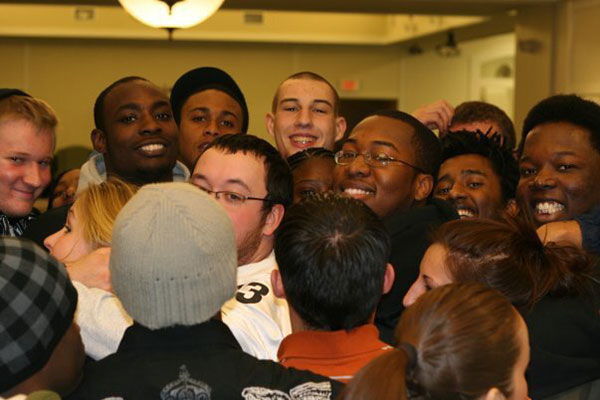
The group's leader and facilitator, Brown wasn't just winging it. He attended conferences, including the National Conference on Race and Ethnicity, for ideas and resources to build his training expertise.
Soon, Building Bridges became the largest club on campus, and meetings had to be held in the alumni house.
“I didn't know the impact it was going to have,” Brown said. “I didn't know people would develop relationships outside of the program. It was changing the climate of campus, making it more welcoming for people of different backgrounds. It didn't just make a difference for Black people. It had a huge following of international students.”
The program also drew the attention of other schools, and Brown helped many form their own chapters under different names. He said the first school to approach him to share what he was doing was IUP.
Former sociology faculty member Melanie Hildebrandt had heard about Brown's work, and with help from Student Affairs, she arranged a workshop that he would lead.
“I thought it was awesome,” said Hildebrandt, now on the faculty of Northern Arizona University. In one of Brown's icebreaker activities, “Stereotype Charades,” she was assigned to portray a White woman, and she acted it out by flipping her hair, complaining she needed her Starbucks, and driving her soccer boys around in a minivan.
“Justin says things in a way that people will hear him. That's a really valuable skill,” Hildebrandt said. “He is someone who can definitely build bridges.”
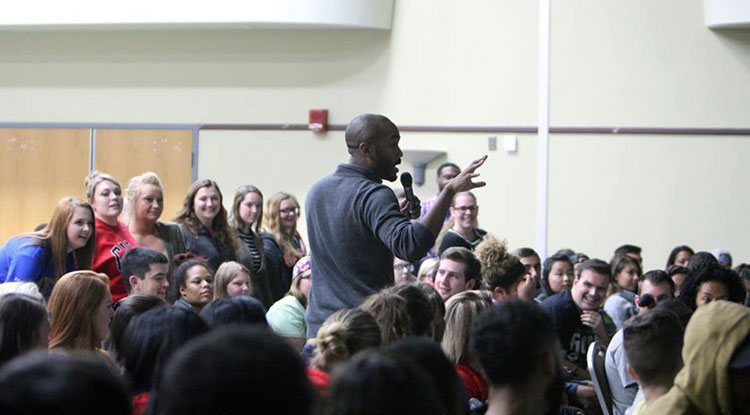
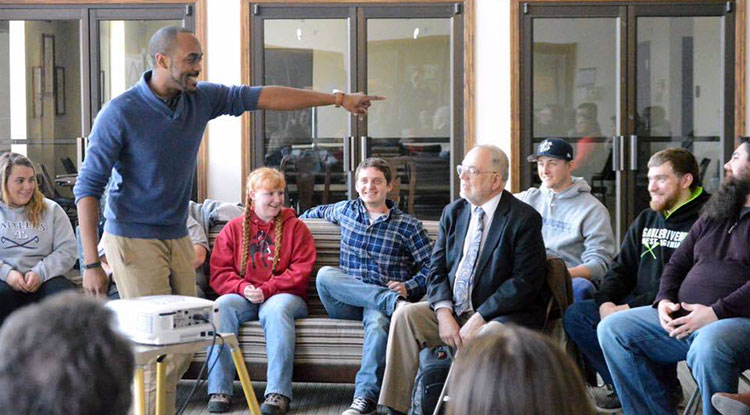
When Brown entered IUP's SAHE program, he was already years into running his company, Diversity Awareness Program, or DAP. He said the master's program complemented his diversity, equity, and inclusion work by teaching him to put theory into practice, and he credits Hildebrandt for making the connection.
“She's the reason I came to IUP and had success at IUP,” Brown said. “If it weren't for her and the passion she had for this work, I think my trajectory would have been completely different.”
He said professors John Mueller—coauthor of what Brown calls the “go-to book for our field,” Multicultural Competence in Student Affairs—and John Lowery nurtured his development as a diversity educator. The community he found at IUP also included Roger Briscoe in Educational and School Psychology and Malaika and Theo Turner, who “helped me to mature the work so that the impact met the intention.”
Now IUP's assistant vice president for Student Affairs, Malaika Turner worked in Residential Living when Brown was a student and residence director. She said he won awards for his contributions and provided numerous diversity programs.
“As a Black professional in higher education, I see value in connecting with graduate students of color and developing meaningful relationships,” said Turner, herself a recipient of IUP bachelor's, master's, and PhD degrees.
“His energy and enthusiasm were contagious, and he was full of ideas,” she said. “I'm a mom of two young men, so I found myself listening, encouraging, and pouring into him with the same energy I would my own sons.”
After earning his IUP degree, Brown started another business, a college-preparatory program called Onward and Upward. He also took a job as a residence director at West Chester University. Last year, he started a new position as the first director of diversity, equity, and inclusion in the Downingtown Area School District.
Meantime, his national reputation as a diversity trainer has ballooned. While colleges and universities are his most frequent clients, he has also spoken to Fortune 500 companies, small businesses, churches, and police departments. Recently, he did his first training for a professional sports team, the Minnesota Twins.
His 2017 book, Ugh!?! Not Another Diversity Book, mirrors one of his training programs with a similar title, referring to bad experiences people may have had with previous diversity programs.
He said he builds his presentation on a “no-shame-based paradigm: People show up with their truth, I show up with my truth, and together, we find the truth.”
Brown said he often comes across people who are resistant to diversity training.
“The biggest reward, or the time I feel most humbled, is when someone has that lightbulb moment. They get it, and they think, ‘I would never have thought this if we didn't have this dialogue.' A lot of times, we're saying the same thing. We're just saying it differently.”
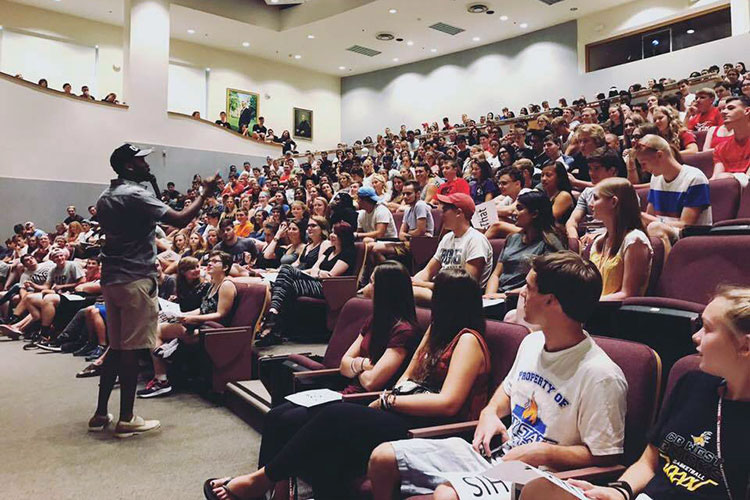
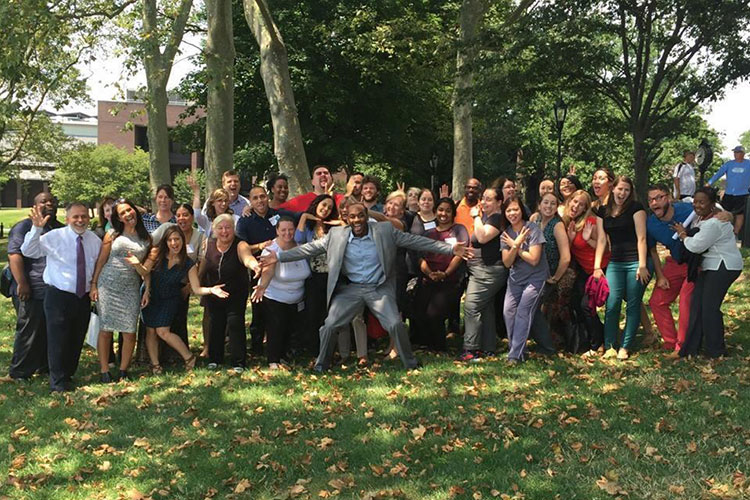
Brown has been a frequent speaker for IUP, where his training ideas have also been put to use.
A couple years ago, Amber Dworek '10, director of Graduate Admissions at IUP, met Brown at an alumni event. Last fall, she and her graduate assistants, who are from the Student Affairs in Higher Education program, took one of Brown's virtual training sessions.
“The GAs loved him, and they wanted more,” she said.
Dworek responded by purchasing copies of Brown's book and the accompanying workbook. Every two weeks, she, the GAs, and the department secretary read a chapter. Then, on the Microsoft Teams communication platform, they discuss a question from the workbook.
“The discussion has been awesome,” Dworek said.
She gave as an example Brown's chapter on perceptions, which sparked discussion about whether graduate school is perceived as elitist and what the Graduate Admissions office can do to change that perception. One suggestion from her GAs involved stepping away from their Sutton Hall office, instead stationing themselves in the library or the multicultural center with laptops and engaging students there.
They also began rethinking their website and whether students understand the terminology, such as graduate assistantships. “If you don't live in this world and you don't know what that means, you could be missing out on opportunities,” Dworek said.
“I was a first-generation student, and I was lucky to have mentors and people to guide me. If our office can do that for one student—can be that resource—that would make all of this 100 percent worth it.”
During the pandemic, in addition to moving his training programs online, Brown started a web series, Motivation Monday, in which celebrities join him on Zoom to talk about diversity issues. Episodes air on the DAP Facebook page. Guests have included Craig Robinson from The Office, the Today Show's Al Roker, comedian Bill Burr, and Easton resident Larry Holmes, the only living boxer to have defeated Muhammad Ali.
Brown and his wife have also written a series of children's books about diversity. The title character, September Rose, was based on their daughter, now 6.
Given Brown's diverse personal and professional roles, the time he devotes to advancing diversity, equity, and inclusion is a testament to the importance he places on this work.
“There were times where I was expected to enter a space with a Black face but not a Black voice,” he said. “I want to further education for all, so that the country enters a time of true equity for all.”